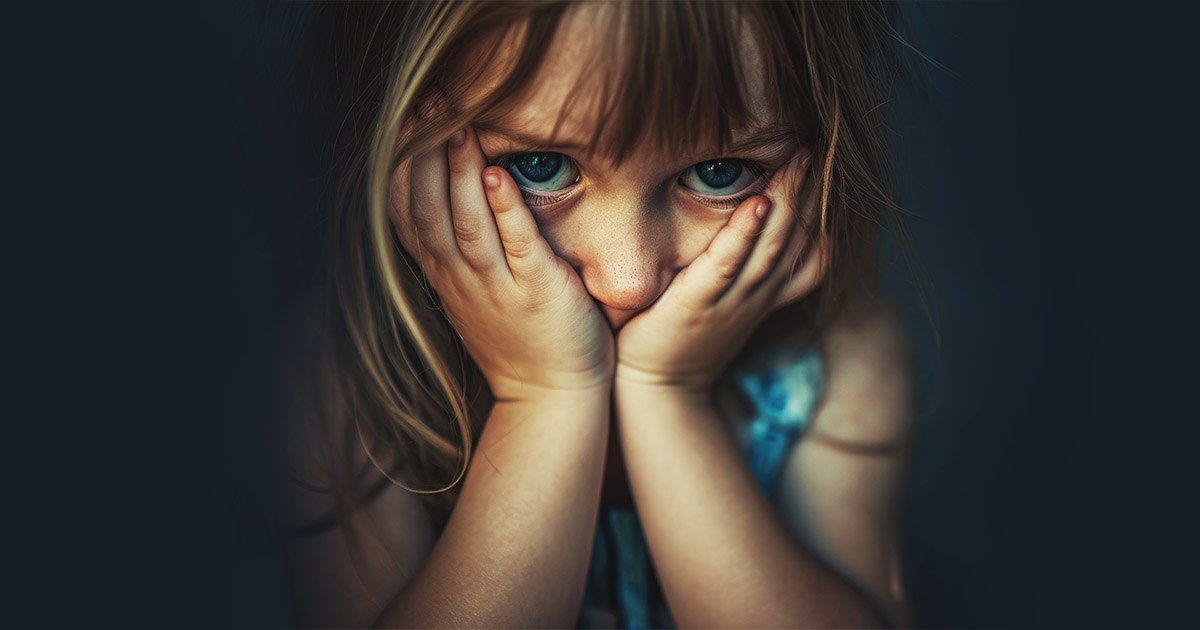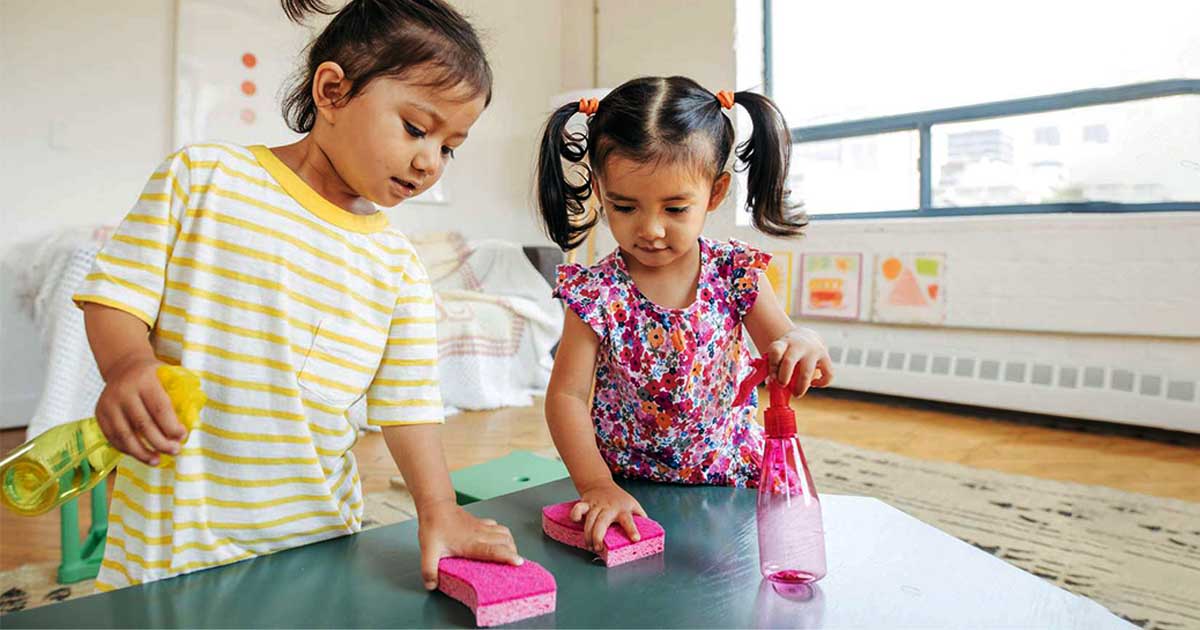According to the Centers for Disease Control and Prevention (CDC), emotional child abuse and neglect are unfortunate problems that exist in the United States with one-seventh of children being victims
It is important to note that parents or legal guardians of children under 18 who commit child abuse, including emotional abuse, are committing a serious crime. These actions have legal consequences according to the Federal Child Abuse Prevention and Treatment Act.
In this article, we look at the nature of accidental emotional child abuse, its various forms, frightening signs to watch out for as well as how preventing accidental emotional abuse can be put into place. This issue deserves wider attention because we seek to create an environment where people can become aware of it and respond effectively to it.
What Is Emotional Child Abuse?
Emotional abuse, which is also called psychological abuse, is any harmful pattern of behavior that lowers a child’s self-esteem and interferes with their emotional development.

Typically, this type of insult consists of refusing to express love or support towards the victim and acts such as rejection, criticism, threats, or belittling. Humiliations done through name-calling are also common.
Sometimes it is hard to identify what is emotional abuse because it may be mild or slow in onset and can occur along with other types of maltreatment or neglect. The perpetrator strives for power over their victim by using derogatory remarks and behaviors that destroy the latter’s dignity as well as trust in others.
Regrettably, this form of mistreatment has serious long-term effects since it increases physical illness vulnerability besides mental disorders among survivors.
Read More: 5 Warning Signs of Child Sexual Abuse And How to Protect Your Kids!
Alarming Signs of Accidental Emotional Abuse
To safeguard the well-being of children, it is important to be able to identify emotional maltreatment.

Below are some disturbing signs of emotional abuse to be aware of:
1. Continual criticism:
When children are constantly and repeatedly criticized – whether about their looks, skills or conduct – they may take in these harmful messages which can make them feel as if they are bad at everything.
This nonstop stream of blame will lower their self-worth while increasing doubt in what they can do or what value they have as individuals. Eventually, they might become too hard on themselves seeing only faults and flaws thus affecting their mental health generally.
Moreover, such an environment created by unrelenting criticism breeds hostility at home thereby retarding emotional growth among other aspects necessary for a child’s life success.
2. Humiliation and belittlement:
If a caregiver consistently humiliates or belittles a child, it could damage the kid’s self-esteem and emotional growth forever.
The feeling of being constantly made fun of or made small can bring about shamefulness, public disgrace as well as feelings that one does not deserve respect from others. Such children tend to believe all negative things said about them hence taking these personally thus thinking that there must be something wrong with who they are.
This affects how they perceive themselves vis-à-vis others leading to difficulties in articulating themselves or defending their own rights especially when the need arises. Also being humiliated while still young may contribute towards anxiety disorders including but not limited to depression later during adulthood
3. Verbal Violence:
Using harsh or threatening words against a child frequently creates an atmosphere of fear, anxiety, and emotional chaos. When parents practice verbal violence as a way to punish or control their children, they leave deep wounds in their hearts forever.

The continuous flow of insults and derogatory statements can erode their self-worth leaving them feeling useless and powerless in life. More so, verbal violence can make them have little trust for people thereby creating insecurity in relationships since they associate love with pain and cruelty.
Again this may affect how well they can establish healthy relationships with others because if one cannot trust easily then even making friends becomes hard for him/her.
Read More: 10 Harmful Excuses To Abuse By Toxic Parents! Watch Out
4. Being indifferent or neglectful:
Ignoring the needs of a child by not showing any interest in them could be equally harmful as other obvious forms of abuse. Caregivers who always fail to respond emotionally when kids require their attention communicate unconsciously that those children do not matter and deserve no affection at all.
In addition, being rejected constantly or neglected by parents makes one feel very lonely hence leading to serious emotional problems later on in life. Also, it is during these crucial stages where lack of care from loving adults can impair an individual’s ability to form secure attachments with others thus affecting his/her capacity for managing feelings appropriately.
Consequently, this might also damage social skills since such persons find it hard trusting anyone else apart from themselves because nobody cared about what happened to them when they were young.
5. Blaming and making a scapegoat:
Attributing fault to the child for problems or situations that are not within their control may destroy his self-esteem and self-worth.
When parents always blame one of their kids, it creates a poisonous environment in which the child thinks that he is the cause of all family issues or failures; thus, feeling guilty, embarrassed, and worthless since he believes that there is something wrong with him.
In addition, when an individual is constantly accused of everything wrong around them, it makes them lose touch with who they are as well as what they need because they no longer value themselves enough to fight for what is rightfully theirs.
6. Gaslighting:
Gaslighting refers to emotional abuse whereby the perpetrator manipulates how the victim sees things such that he starts doubting his thoughts, emotions, and even experiences.
It is among the tell-tale signs of emotional abuse in children.

For this reason, it can be extremely disorientating for children who then find themselves struggling with understanding whether what they see matches up against what was stated by those abusing them mentally.
It confuses other negative feelings like self-doubt; therefore making kids feel less secure about themselves since they grow up learning not to trust their judgments but only rely on abusers’ accounts about events around them.
Additionally, gaslighting has the potential of undermining children’s sense of personal value and independence thereby making it hard for such individuals to speak out or stand up for themselves whenever necessary.
Read More: How To Avoid Parental Gaslighting: 5 Effective Tips For Parents!
7. Emotional Neglect:
Ignoring the emotional needs of a child like soothing, acknowledging or directing can lead to severe impacts on his/her emotional health and growth. In other words, when parents fail to attend to their children’s emotional requirements; they are indirectly telling them not only to suppress their feelings but also that whatever happens around them does not matter.
As a result of this neglectfulness, young ones may feel empty inside themselves because there is nobody who understands what they are going through hence causing emotional pain too.
Additionally, when a person lacks support emotionally as well as validation; it kills one’s self-esteem such that even relating with others becomes hard therefore making it difficult for the individual to handle various aspects of life.
Therefore do not be ignorant about these indications but rather take prompt action to save kids from being damaged by any form of mental cruelty. If you think someone is emotionally abusing a child seek assistance from an influential person or professional.
How To Prevent Accidental Emotional Abuse To Your Kids?
To avoid unintentionally hurting children emotionally, we must create a caring and understanding atmosphere around them through the words and actions we choose.

Here are some things I suggest to prevent the manifestation of the signs of emotional abuse in kids:
1. Self-awareness practice:
Spend time thinking about your feelings, what makes you react, and some past events that might affect how you parent. Being aware of oneself can prevent us from throwing our issues at the child.
Observe those habits that may be detrimental to your child’s emotional health unknowingly and try to deal with them by looking inward or seeking professional help if necessary.
2. Advocate positive reinforcement:
Instead of just pointing at their errors or weaknesses all the time; let this approach be centered on recognizing the efforts made by a kid while praising them. Give genuine compliments that are specific enough to enhance their self-confidence thus;
What matters most is not only identifying these strengths but also amplifying them through continuous improvement so that even when faced with challenges they will always feel supported because such an atmosphere breeds resilience in children.
A positive attitude accompanied by encouragement goes far in building healthy relationships between parents and kids based on appreciation as well as mutual respect.
3. Promote open communication:
Make a safe space for your child to express their thoughts, feelings, and worries without fear of judgment. Pay close attention to what they say without cutting them off or disregarding their emotions.
Validate their experiences and respond with empathy in order to show that you hear and care about how they see things. Trust is built through openness, which encourages the young ones to come out with their problems and seek help from you.
4. Have realistic expectations:
When setting goals for kids, be aware of the age appropriateness and achievability given their strengths, interests, and stage of development.
Do not push them too hard towards excellence or perfectionism; this will only leave them feeling inadequate and stressed out. Rather provide direction, support as well as encouragement when they are facing difficulties in life or learning something new.
If you appreciate the steps taken plus improvements made by children then you are empowering them with a growth mentality which helps build resilience against failure.
5. Be a good role model:
Show healthy ways of communicating, resolving conflicts, and regulating emotions during personal interactions with your kid(s) or other individuals around them. Practice empathy, kindness plus respect in relations while dealing calmly but constructively whenever there’s a disagreement between people close to each other including family members and even friends.
Actions speak louder than words; therefore children often learn through watching how adults handle different situations hence modeling positive behavior necessary for instilling social skills alongside emotional intelligence needed for better living among peers within society at large.
These tips should guide you as well as enhance an atmosphere that cares about healthy growth in kids based on mindfulness towards their emotional needs.
Read More: 10 Important Parenting Lessons Every New Dad Should Know!
A Word From Mind Family
It is the responsibility of parents and caregivers to create an environment that fosters emotional and psychological growth among children. Therefore, we need to be cautious of what we say or do as they greatly affect their mental states.
If we make them our priority by loving, supporting, and acknowledging them, they will develop self-confidence and adaptability in facing difficulties throughout life.
Let us therefore pledge together to establish security for our children such that they may feel appreciated, listened to as well, and motivated towards realizing their talents.
Frequently Asked Questions (FAQs)
1. What is emotional child abuse?
Emotional child abuse is a harmful pattern of behavior where caregivers undermine a child’s self-esteem and emotional well-being through actions like criticism, belittlement, and neglect.
2. What are the signs of emotional abuse in kids?
Signs include constant criticism, humiliation, verbal aggression, neglect of emotional needs, and blaming or scapegoating.
3. How to stop accidental emotional abuse in kids?
Prevent by fostering self-awareness, positive reinforcement, open communication, realistic expectations, and leading by example.











